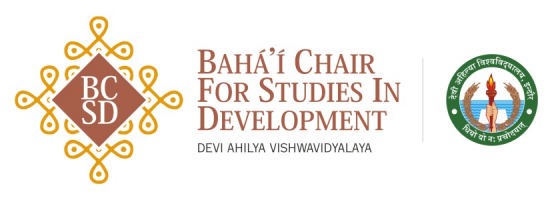Lecture on ‘Anthropogenic Expansion of Biodiversity and its Erosion by Agricultural Development’

Lecture on ‘Crafts, Clusters and Institutional Innovation: Thoughts for Policy’
January 24, 2024
Lecture on ‘The Bhil Advivasis’ Traditional Modes of Ecosystem Restoration’
January 24, 202420 DECEMBER 2023
A large number of Green discourses blame humans as a species for the current ecological crisis. However, this description serves to conceal the role of humans, in both past and contemporary pre-industrial societies, as custodians of biodiversity. Indigenous societies are known to conserve their natural resource-base for posterity, by instituting cultural norms against exhaustive resource use. In addition, pre-industrial societies also increased biodiversity on species and genetic levels, by domestication of wild species. While Darwin gave much importance to the process of domestication of plants and animals by means of artificial selection, modern science and agriculture curricula tend to neglect this aspect of the history of human civilization. The novel species, created in the process of domestication, are characterized by many morphological and behavioural traits never found in the wild progenitor species.
An unfortunate consequence of agricultural modernization is the erosion of on-farm genetic diversity of crop and livestock species worldwide. Most of the modern farmers, predominantly dependent on the industrial supply of crop seeds, have forgotten the methods of genetic purity maintenance, resulting in the rapid loss of the hundreds of crop landraces with distinctive properties, which were selected centuries ago for diverse agronomic, gustatory, and aesthetic qualities. A recognition of the value of the custodian role of humans in creating and conserving biodiversity will likely promote biodiversity conservation ethos in modern societies, and the value of genetic purity of the extant crop landraces.
Click here for the background note.
Event Highlights Photo

https://www.youtube.com/watch?v=nJ9-Z8EnajM
About the speaker:
Debal Deb is a biologist, with a doctorate in ecology from Calcutta University. He conducted post-doctoral research in human ecology of estuarine resource use at the Indian Institute of Science, Bangalore (1988), and in ecological economics at University of California, Berkeley, as Ford Foundation Fellow (2001) and Fulbright Fellow (2009). In 1997, Deb founded Vrihi, India’s largest open source rice seed bank, conserving 1440 folk rice varieties, and a conservation farm Basudha. Deb has analysed in his laboratory, for the first time, the nutraceutical properties of numerous uncultivated food plants and hundreds of rice varieties.
His free-lance research in agroecology, crop genetic diversity, forest ecology and ecological economics have been widely published in international journals.

